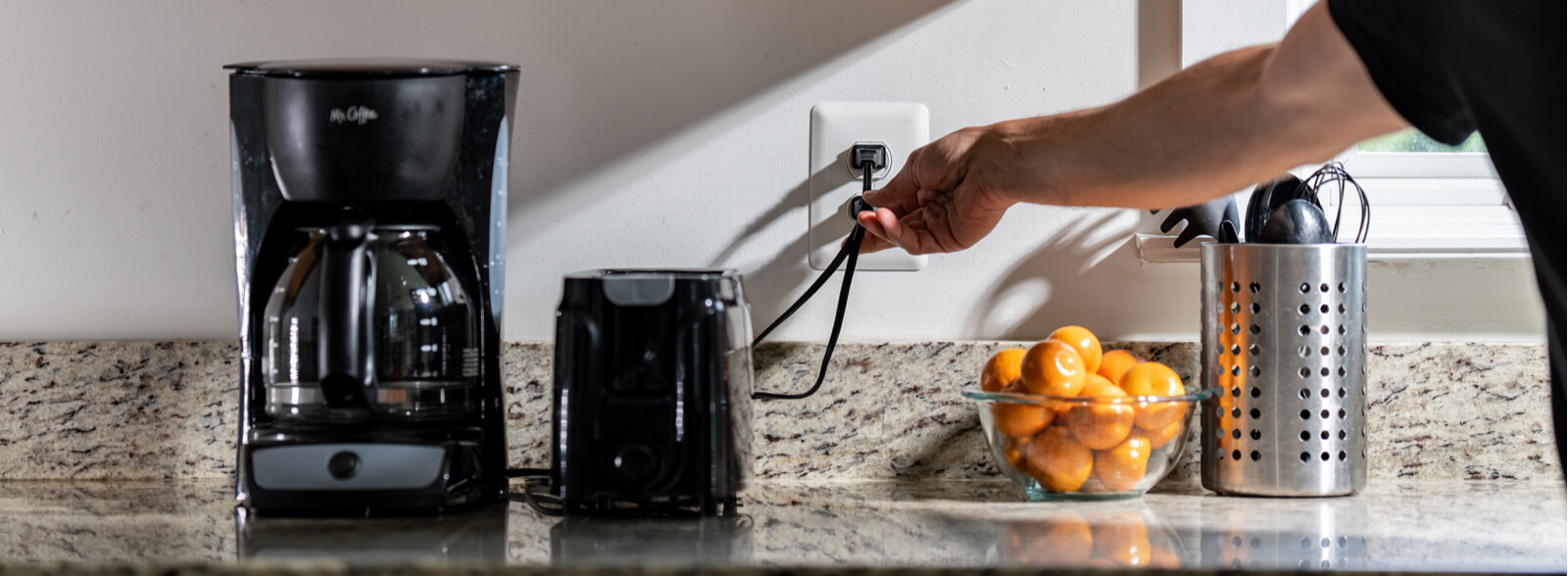Energy Saving Tips for Renters

Virginians living in rental properties may face unique challenges when it comes to reducing their energy consumption.
Many factors that affect residential energy usage — the home’s structure, appliances, heating and cooling, and levels of insulation — may be controlled by the homeowner or property manager. Fortunately, for short- and long-term renters alike, there are still plenty of opportunities to lower energy usage and costs.
What To Consider When Renting a Home
- Ask whether you are responsible for paying your own utility bill. If you are, ask to see a monthly bill history so you know what to expect, especially in peak heating and cooling seasons.
- It never hurts to ask whether the landlord or property manager would be willing to make certain upgrades before you move in. Simple upgrades like installing a programmable thermostat and replacing kitchen appliances with more energy-efficient models will be mutually beneficial for you and the owner.
- Once you’ve moved in, discuss making energy efficiency improvements with your landlord. A property owner may be open to reducing your rent if you take on projects to improve the home’s efficiency in the long term — like sealing air leaks and arranging a heating and air conditioning checkup.
Everyday Energy-Saving Habits
- Turn off lights when you’re not using a room. For a bigger impact, switch from incandescent lightbulbs to LEDs, which use up to 90% less energy and last 25 times as long!
- Plugged-in electronics or small appliances still use energy when they’re not in use. This so-called phantom power can add an average of $100 to your yearly energy costs. Unplugging devices you don’t use very often is an easy way to save energy and money.
- If you have an in-unit washer and dryer, wash your clothes in cold water, run full loads, and air-dry when possible to save energy.
- Take shorter showers. It takes about 3,000 watt-hours to heat the water used in a 10-minute shower, and the average household spends $400–$600 a year on water heating.
Extra Energy Savings
- Use smart power strips as the central turn-off point for all your electronics instead of plugging directly into a power outlet. Plugging electronics into a power strip allows you to easily turn them off.
- Make sure that your furniture is not blocking any air vents. This will force your heating and cooling system to work harder to keep the room at a comfortable temperature.
- If you notice a draft under a door or around an air conditioning window unit, consider a door draft stopper or a window-mounted air conditioner cover to help with insulation.
- If your rental has a programmable thermostat, adjust it to the lowest comfortable temperature in the winter and highest comfortable temperature in the summer. Even changes of a few degrees can save energy. Set the thermostat to automatically raise or lower the temperature when you are sleeping and when you’re away. Doing this can save up to $150 a year. If your unit doesn’t have a programmable thermostat, manually adjust the temperature whenever you leave home and especially when you’re traveling.
Whether you’re in a long-term residence or a college rental for the school year, there is always something you can do to save energy. Get started by doing your research, understanding your electricity bill, and talking with your roommates and landlord or property manager. They may be surprised to learn about the many opportunities available to save energy and money. Visit our Saving Energy at Home page to learn more.
Get Energy Saving Tips in Your Inbox
Subscribe to our email list to get energy saving tips and stay up to date on resources from Virginia Energy Sense.